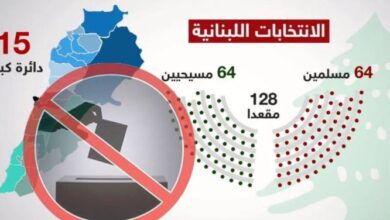The Iraq War helped destroy what it meant to be an Iraqi

As a French citizen of Iraqi descent, I have watched a collective amnesia overtake the world since the invasion of Iraq 20 years ago. The anniversary of the start of the war is an excuse for uneasy acknowledgments that mistakes were made. Everyone wants to focus on the future.
In Iraq, the war is well remembered. It shapes the everyday lives of people trying to build an existance for themselves and their families. But the war has also erased a coherent sense of Iraqi identity. This is the war’s most bitter legacy.
I have been going to Iraq since I was 9. My first visit was in 1989. I was born in Paris, but my parents are from Fallujah — a clean, green city bordered by the Euphrates River. (I am named for the river, which is called al-Furat in Arabic.)
Though my early experiences were idyllic, the country was anything but. Back then, people were frequently persecuted by Saddam Hussein’s tyrannical regime. Every person daring to oppose Hussein could be coldly erased from the national narrative — killed, jailed or otherwise silenced. My family did not escape unscathed. My father spent time in Hussein’s prisons in 1972.
Hussein’s violence was at times directed at whole communities. At the end of the Iran-Iraq War, in 1988, his campaign against the Kurds massacred between 50,000 and 100,000 people. In 1991, tens of thousands of Shiites were tortured or killed as part of a policy of collective punishment for a broad uprising against the regime.
Nevertheless, just as it was for many citizens in Joseph Stalin’s Soviet Union, everyday life was safe, calm and predictable for those around me. I was surrounded by a warm and loving community that identified as Iraqis — not as Sunnis or Shiites. Iraqi identity was already fraying under Hussein, but it still meant something. The country still cohered.
When I next returned, in 1992, the embargo imposed by the United Nations Security Council had just begun to set in. I visited again in 1995, and by then the weight of sanctions on Hussein hung heavy over Iraq. Fallujah began to fold in on itself. People were hungry. My cousins were dropping out of school to work in the local markets. When I left Iraq at the end of that visit, I did not know if I would return. The society no longer attracted me. I wanted to focus on my teenage life in France.
After 9/11, momentum for the Iraq War picked up steam. In Western media, Iraqis were reduced to either victims of Hussein who longed for occupation or supporters and defenders of dictatorship. This troubled me. The truth was more complicated. Many Iraqis I knew were not political. They had no love for Hussein, but they wanted a quiet life.
I opposed the war. I still do.
From June 2003 to September 2013, I made Baghdad my home. By then I was a news reporter, covering the fallout of the invasion: the Abu Ghraib prison scandal, the Blackwater killings, the growing sectarian conflict between Sunnis and Shiites, and the rise of the Islamic State. I watched the country tear itself apart.
The United States made some terrible decisions after the original sin of the invasion. The Iraqi army was hastily disbanded, the sloppy de-Baathification of government institutions drove people away from a common project and into the hands of political entrepreneurs who spoke in terms of tribe and sect. The weakness of the resulting state invited Iran to enter into the very heart of Iraqi politics and exacerbate sectarian divisions.
These decisions were not just unwise or careless. They left the country with a sectarian political system that carved into marble a political power-sharing dynamic between Sunnis, Shiites and Kurds. The concept of a multicultural Iraq was destroyed. The war left Iraqis without a country.
The many challenges Iraq faces today are linked to these entrenched divisions. One bloody dictator was killed and replaced with countless petty tyrants. Baghdad itself is no longer the city it was. With rare exceptions, Sunnis live in Sunni neighborhoods, and Shiites in their own. In the rest of the country, the “soft partition” of Iraq into a Kurdish north, a Sunni west and center, and a Shiite south — an idea Joe Biden once championed — is a reality.
And corruption has become inescapable. When your political system is tribal, no attempts are made to work for a common good. Estimates vary, but somewhere between $150 billion and $300 billion of Iraq’s wealth has been siphoned off since 2003. Transparency International ranks Iraq as one of the 25 most corrupt countries in the world. The chaotic period after the end of Hussein’s regime allowed Iraq’s new political elite to protect its own interests.
Yet hope remains. It resides with the next generation. In October 2019, young people rose up in protest, shouting “We are all Iraqis.” Many were gunned down by militias. But their spirit is unbowed. “Iraqi identity will be rebuilt in the streets, by the youth that were not yet born in 2003,” Montadhar Hassan, an Iraqi journalist, told me. “We need that new generation to replace the old, in order to get back to what being Iraqi is.”
By and large, Americans have moved on. On this anniversary, I plead for an end to amnesia. Americans should remember the debt they owe Iraq — what was destroyed, and what was left in its place. They should remember that Iraqis were once a proud people — and know that, with time and help, they will reclaim their country once again.
Disclaimer: Views expressed by writers in this section are their own and do not necessarily reflect Political Opinion point of view





